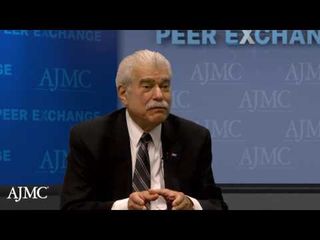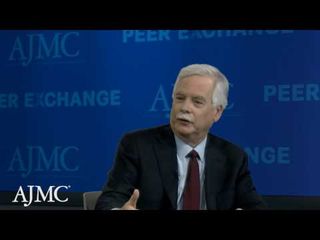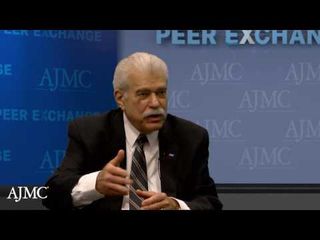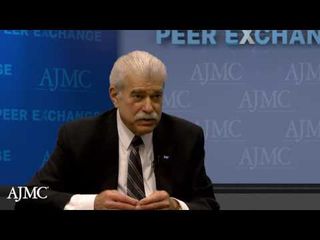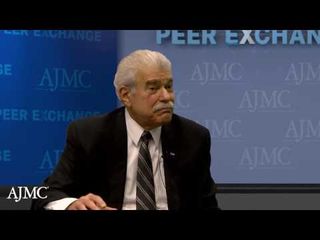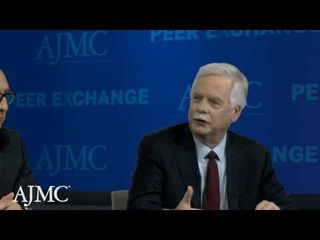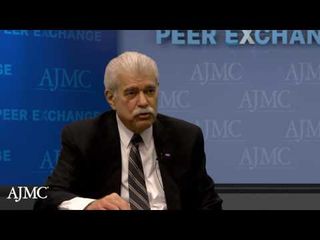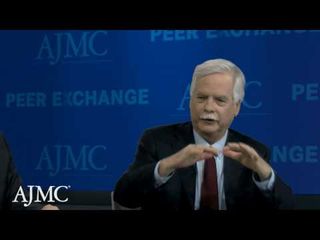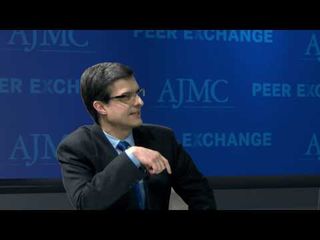
Clinical
Latest News
Latest Videos

CME Content
More News

Representatives from 3 clinics that successfully participated in the Commission on Cancer accreditation process for the Oncology Medical Home model participated in a panel discussion on the first day of The Community Oncology Conference: Innovation in Cancer Care.

On the first day of The Community Oncology Conference: Innovation in Cancer Care, held in Orlando, Florida, April 13-15, 2016, oncologists discussed how their practices are coping with the transition toward quality- and value-based reimbursement.

American workers’ compensation payers experienced a 2.2% increase in pharmacy spending in 2015, but effective management programs helped lower injured workers’ drug utilization by 2.6%.

Adverse drug reaction profiles for 12 marketed antidepressant and anticonvulsant medications are inconsistently reported in Europe versus the United States.

The committee voted 12-1 in favor of delaying approval of the drug and waiting on results from the phase 3 study.

A new study published in The Journal of Urology has found that active surveillance in prostate cancer patients who might have a low-grade disease has the possibility of disease progression in only a small number of patients.

What we're reading, April 13, 2016: scientists find possible "superhero DNA" protecting individuals from debilitating diseases; NPR shines a light on the long wait Native Americans face for healthcare; and doctors rarely discuss weight loss strategies with obese patients.

Cancer pathways can potentially improve patient outcomes and reduce costs. Recent concerns about pathway adoption deserve attention, including excessive administrative burden to clinics.

We offer recommendations for the development and design of clinical pathways in an effort to establish a set of normative criteria that creates trust and transparency.

An updated recommendation by the US Preventive Services Task Force advises the use of low-dose aspirin in adults 50 to 69 years of age, who have an increased risk of cardiovascular disease (CVD) or colorectal cancer (CRC), are not at an increased risk of bleeding, and have a life expectancy of at least 10 years, for the prevention of CVD and CRC.

What we're reading, April 12, 2016: Zika virus scarier than initially thought; KaloBios will adopt a more transparent and "responsible" pricing model for products; and children in rural areas have more complex and expensive hospital stays.

The approval comes following the review of a phase 2 single-arm trial in 106 patients with chronic lymphocytic leukemia who carried the 17p deletion mutation and who had received at least 1 prior therapy for their condition.

Members of the American Society of Clinical Oncology (ASCO) have articulated concerns regarding the current proliferation of clinical pathways in oncology that could affect patient access and care quality. In response, ASCO established an ad hoc Task Force, which issued a policy statement to guide the future development and implementation of these treatment management tools.

What we're reading, April 11, 2016: UnitedHealth calls it quits for 2 Obamacare state exchanges; study finds disparities across country in lifespans of low-income people; and Hillary Clinton and PhRMA agree on one proposal to curb drug costs.

A prospective longitudinal study that followed terminally ill cancer patients till their death has found that patients of African American origins had a poorer understanding of their survival than the white patients in the study group.

Patient-Centered Diabetes Care (PCDC) is important because it provides a venue to share new knowledge and to meet different stakeholders that impact diabetes care, explained Robert A. Gabbay, MD, PhD, FACP, chief medical officer of the Joslin Diabetes Center, chair of PCDC, and editor-in-chief of Evidence-Based Diabetes Management.

The intravenous acetaminophen Ofirmev has been shown to decrease hospital length of stay, opioid-related complications, and overall costs compared with traditional opioid analgesics.

A new study in behavioral cardiology establishes a strong link between posttraumatic stress disorder and an increased risk for cardiovascular diseases and deaths.

This week in managed care, the top stories included new data on statin prescriptions, a trial found the PCSK9 inhibitor Repatha successfully lowered cholesterol, but an editorial said the price might be too high to be worth it, and Farzad Mostashari, MD, discussed care transformation.

A preliminary briefing document expresses concerns over clinical benefit over existing treatments, safety, and overall risk-benefit of the drug for the subset of lung cancer patients for whom the drug has been developed.

The National Comprehensive Cancer Network (NCCN)'s annual conference has traditionally been a platform for NCCN’s Guideline updates. This year's meeting saw much more, with discussions on palliative care, biosimilars, and value in cancer care.

Drug developer Amgen is questioning the assessment of its multiple myeloma treatments at the hands of the Institute for Clinical and Economic Review.

Patients with grade 2 glial brain tumors (gliomas) who were treated with radiation therapy (RT) and chemotherapy had a longer progression-free survival and overall survival than those who received RT alone.

Intracoronary gene transfer among heart failure patients increased left ventricular function beyond standard heart failure therapy.

What we're reading, April 6, 2016: the federal government could be doing more to alert uninsured individuals about their eligibility for subsidies; the White House will transfer leftover Ebola funds to combat the Zika virus; and Senate companion bill to 21st Century Cures Act is almost done.
